This chive blossom vinegar is so simple to make and tastes fantastic.
Beautiful chive blossoms are a spring delicacy! They grow on chive plants from mid to late spring into early summer. They are typically in full bloom when the weather is warm but not hot.
If you grow chives in your herb garden or find some of these beautiful blooms at the farmer's market, you've got to try making this homemade vinegar. If you love chive flowers, try them in our spring omelette as well!
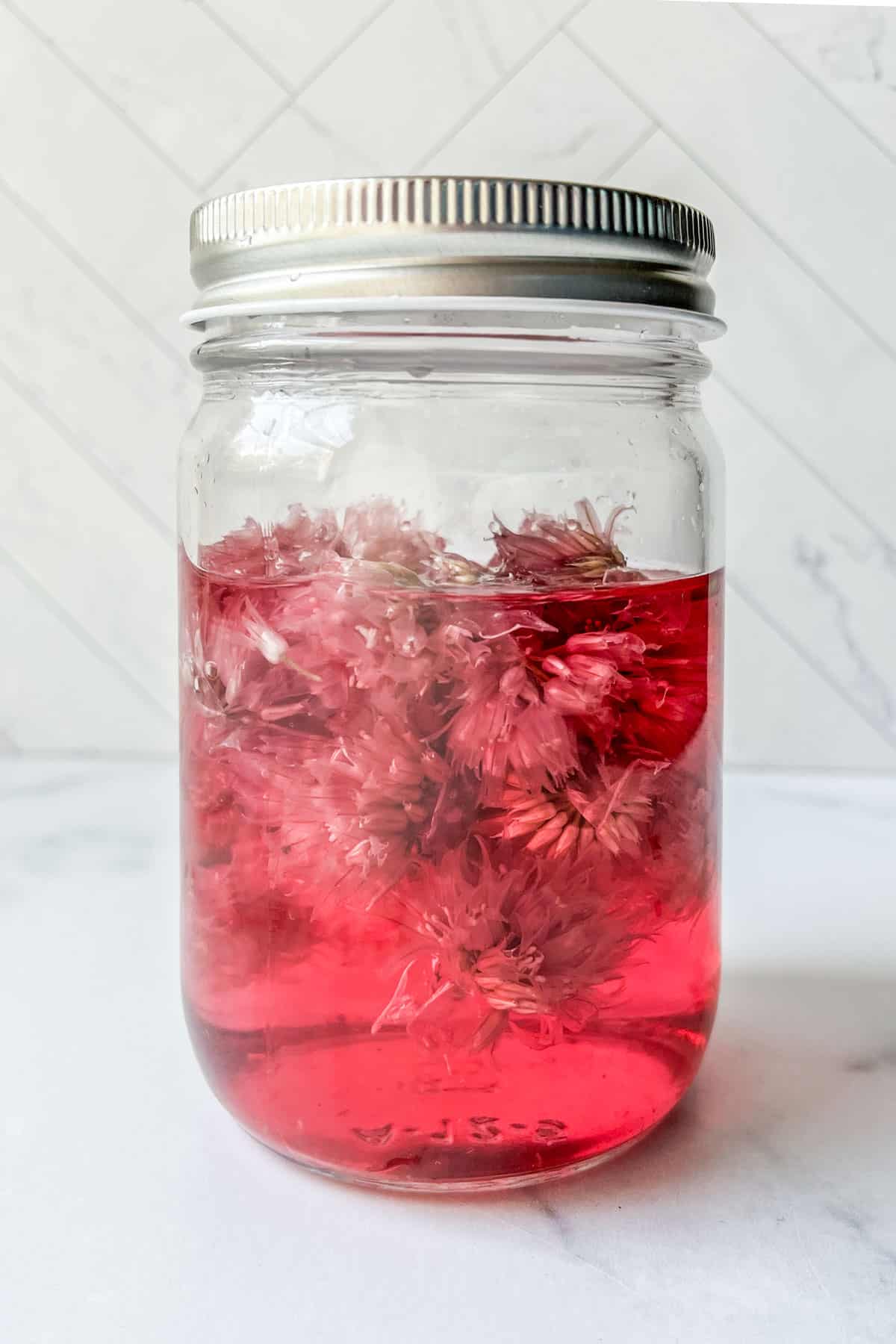
This beautiful, bright pink vinegar is one of my favorite recipes to make in the spring and early summer! Homemade infused vinegar is a special treat in the kitchen and makes a lovely hostess gift.
It's important to ensure your chive blossoms are pesticide-free and otherwise safe to eat.
For some instructions on where to purchase and how to use edible flowers, you can consult my edible flower guide.
Ingredients
Here's what you'll need to make your own chive blossom vinegar.
- Fresh Chive Blossoms
- Vinegar of your choice
- Ball Jar (or any other clean glass jar with a lid)
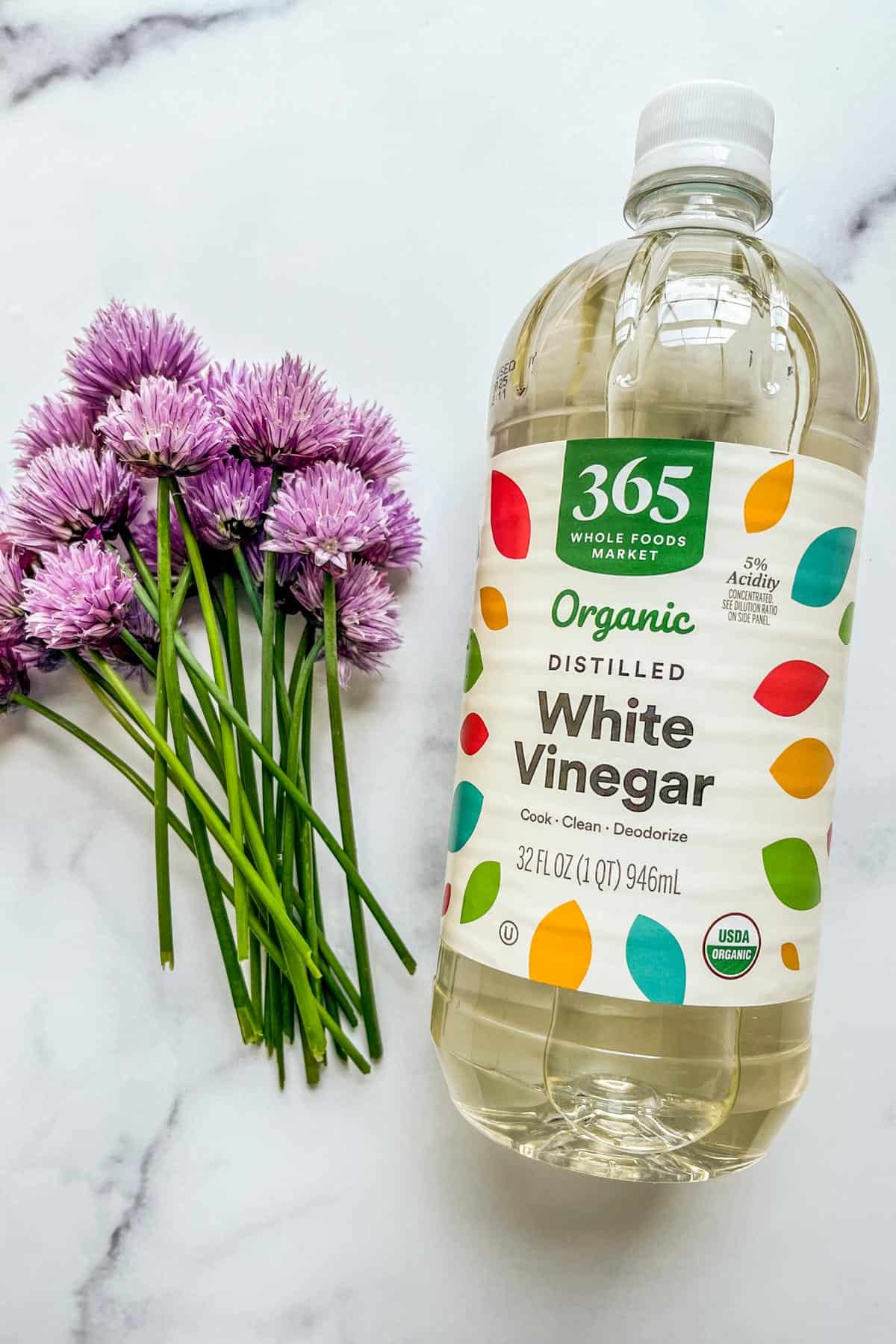
Instructions
Thoroughly wash your chive blossoms. Pat them dry with a paper towel.
Pick the purple chive blossoms off the green stems and place them in a glass jar.
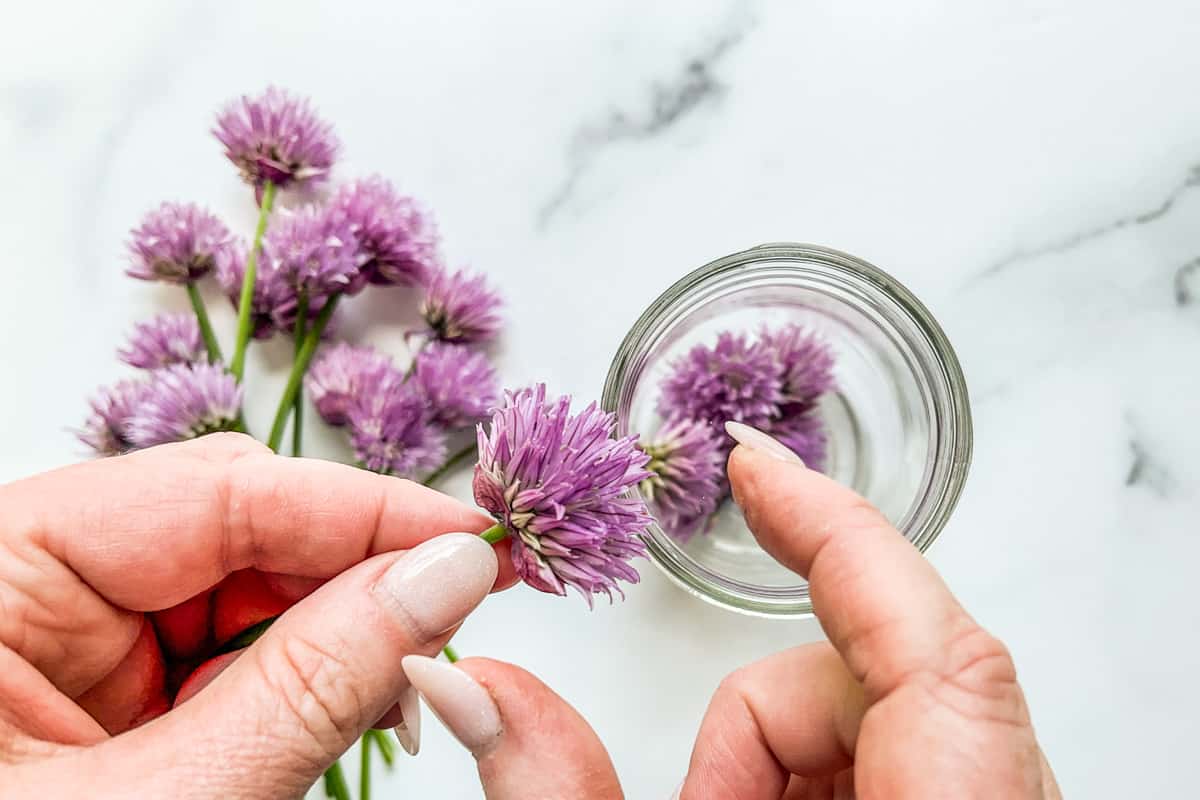
Pour the vinegar into the jar to cover the blossoms. Place the metal lids on the jar and screw to close. Flip the jar a few times to make sure all the blossoms are covered in vinegar.
Store for 2 weeks to 2 months in a cool, dry place.
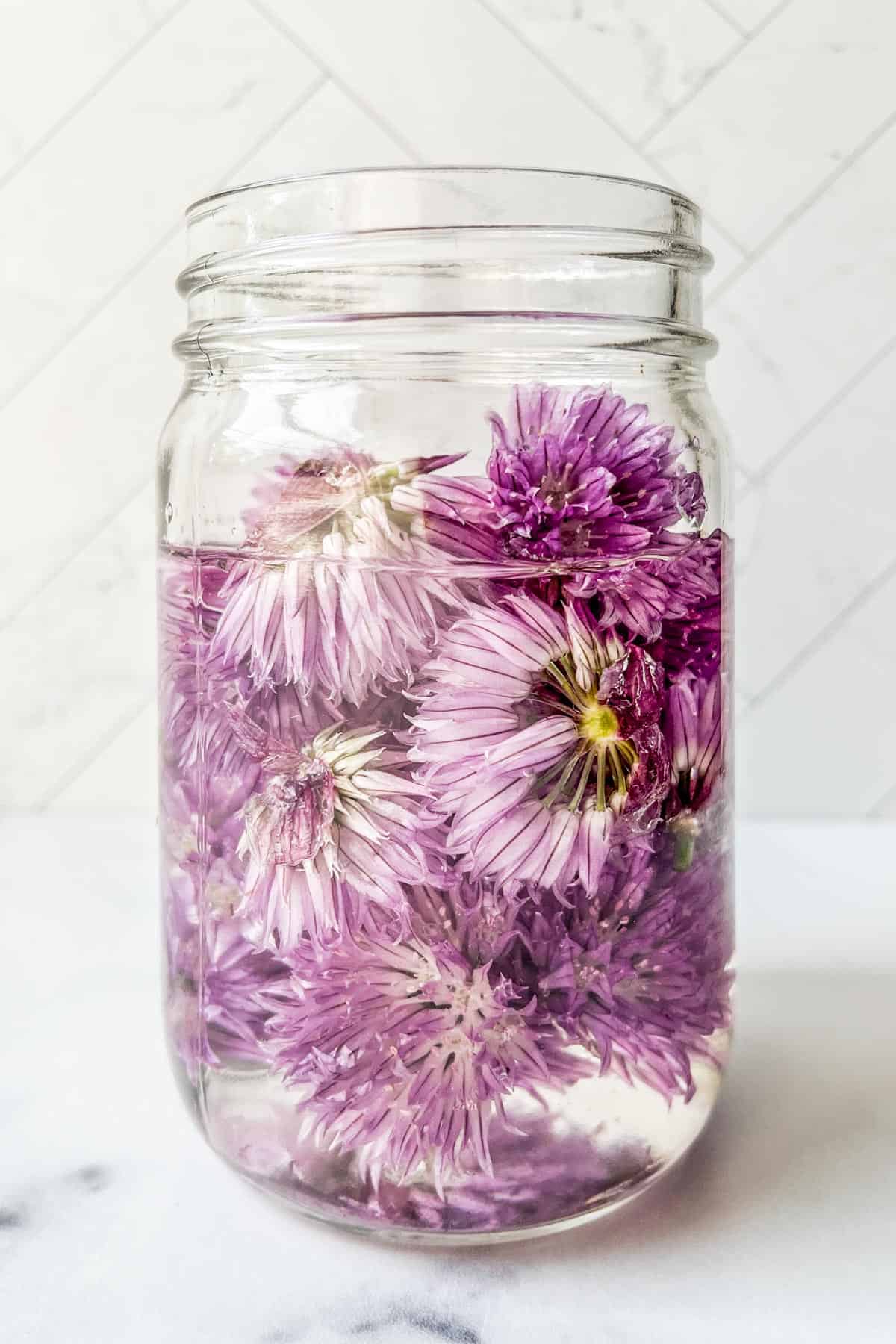
Remove the blossoms from the vinegar and strain the vinegar in a fine mesh sieve if necessary.
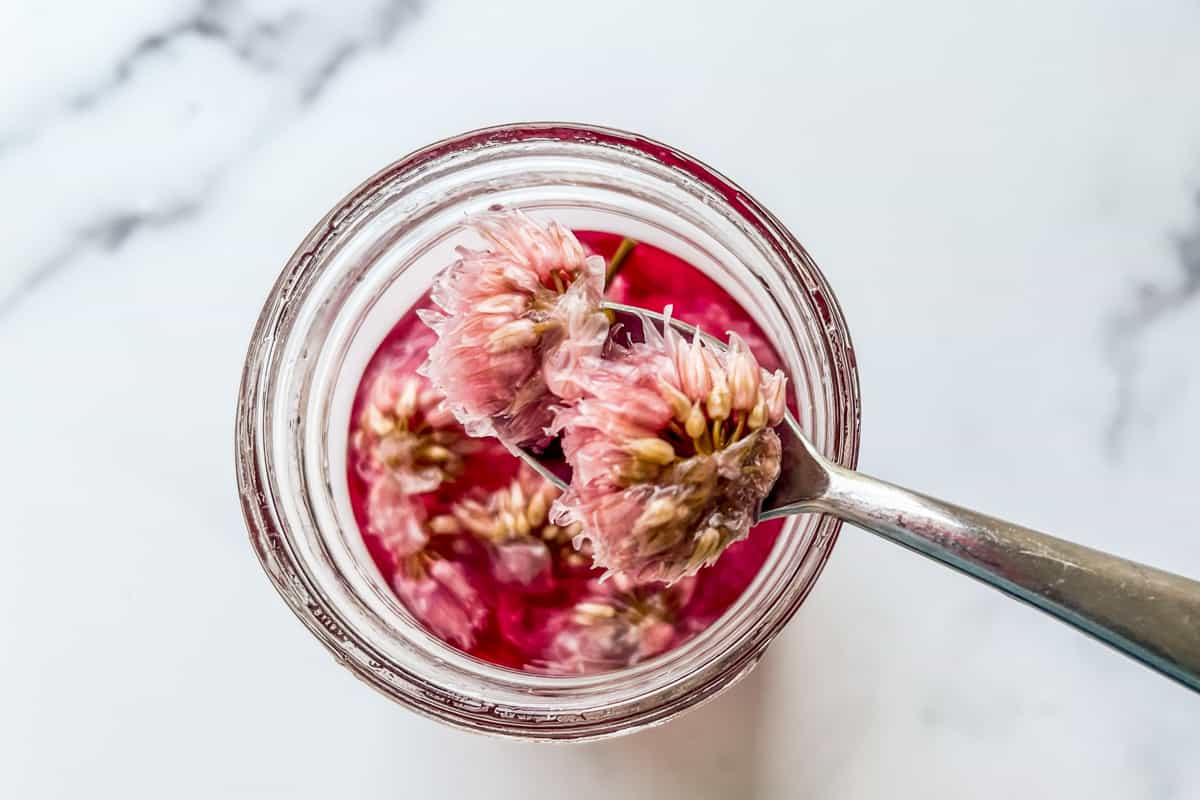

Ways to Use Chive Blossom Vinegar
I personally love using it in salad dressings. I usually add it to a mustardy vinaigrette and serve it with a spinach and arugula salad. Here are a couple of ways to use it:
- drizzled over fries, roasted vegetables, or potato salad
- in place of balsamic vinegar or red wine vinegar in a vinaigrette
- stirred into some ricotta cheese and served with toast
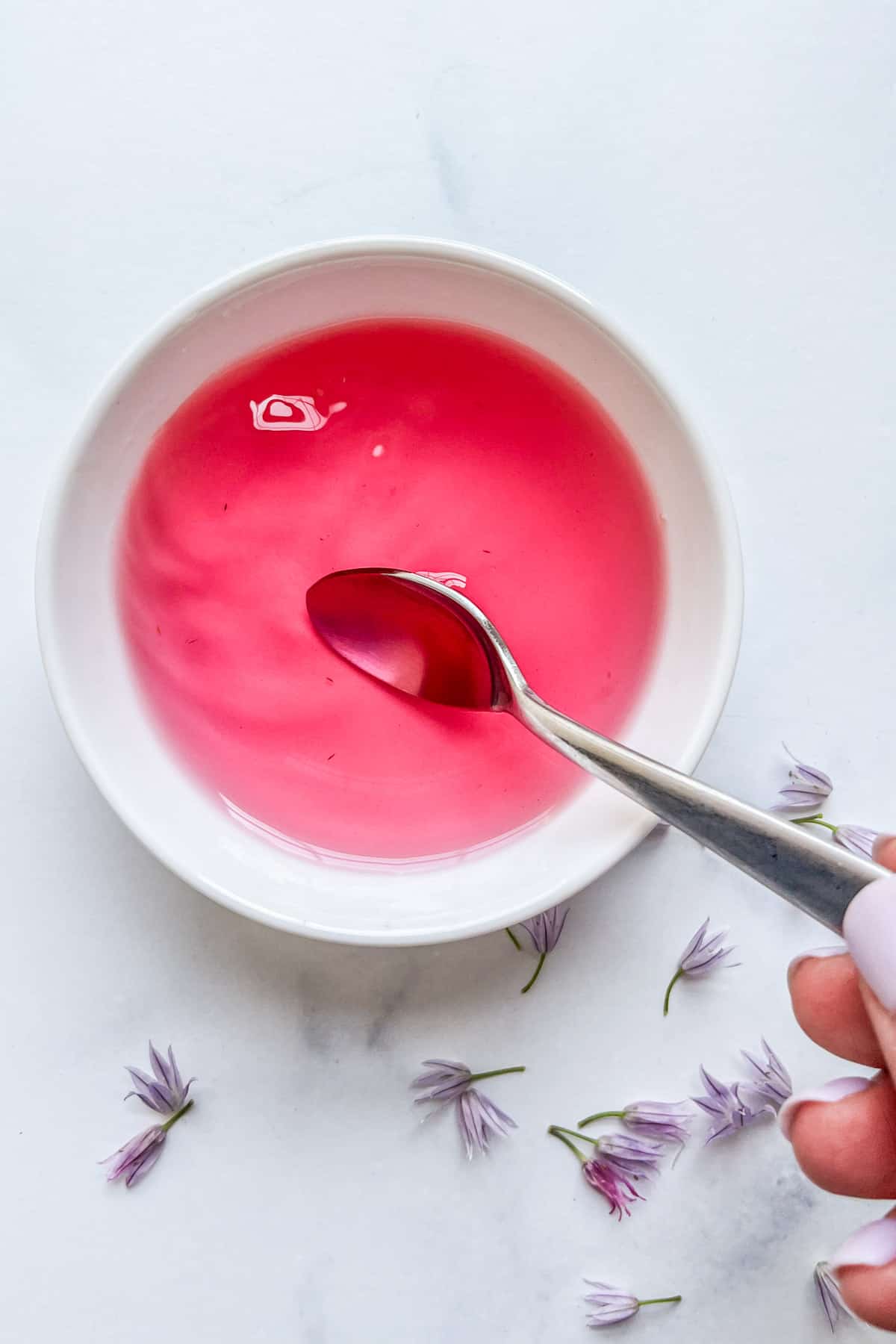
If you try this chive vinegar recipe, let us know! Connect with us on Instagram and share your photos, or leave us a rating.

Chive Blossom Vinegar
Equipment
- 1 Ball Jar or other glass container
Ingredients
- 1 cup white vinegar
- 1 cup chive blossoms washed thoroughly
Instructions
- Combine the vinegar and chive blossoms in a glass jar.
- Cover with a piece of parchment paper, instead of the metal top of the glass jar. The metal will react with the vinegar.
- Keep in a dark, cool place for 2 weeks to 2 months to infuse the vinegar.
- Remove the blossoms from the vinegar and strain the vinegar through a fine mesh sieve if there are any small pieces left behind.
- Store in the refrigerator for up to 6 months or pantry for up to 2 months.





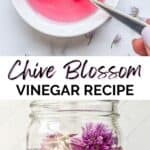
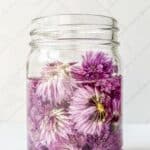
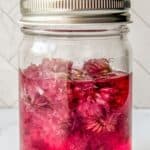
CJ says
CAn you use acv?
Emily says
For sure - the flavor will be different but the infusion will still be the same.
Calyn says
Can you Use dried chive blossoms?
Emily says
I think they would work just fine!
Eileen says
What type of vinegar do you like to use when making the Chive Blossom Vinegar?
Is there one vinegar you like the taste of more in this recipe?
Emily says
Hi Eileen, I use plain white vinegar because I think it's the most neutral vinegar that allows the chive blossom flavor to shine. It's also the one that makes the prettiest colored vinegar 🙂
jack burton says
@Eileen, we have always used white wine vinegar. For us, plain white vinegar has just a bit too much of a bite to it. Either way, because both are clear colored, you are going to get a beautiful, pink vinegar out of the process. Very pretty and appealing.
Sylvie says
Once your vinegar is complet, can you still use the flowers that marinaded in the vinegar ?
EW says
I'd recommend discarding them - they are pretty sapped of their flavor and color after they marinate.